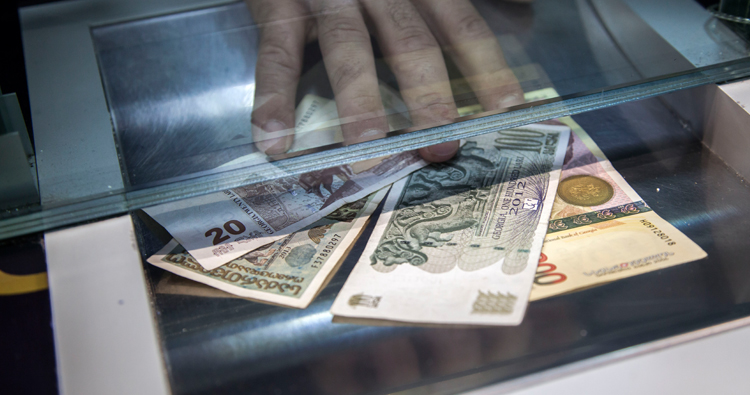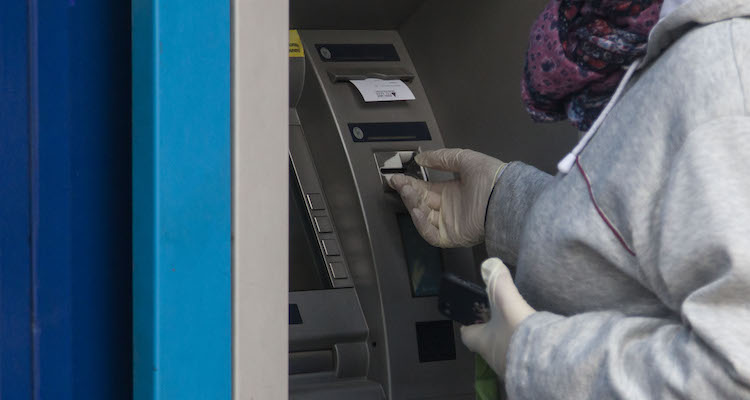Georgian central bank raises monetary policy rate to 9.50%, loans for about 125,000 borrowers to increase 1%

Society and Bank announces that as of April 1, a total of 124,400 loans tied to floating interest rates were issued. The vast majority of them are tied to the refinancing rate. Photo: Nino Alavidze/Agenda.ge.
The National Bank of Georgia (NBG) has increased the refinancing rate by one percentage point to 9.50% as a result of which loans for about 125,000 borrowers will increase by one per cent, says the non-government organisation Society and Banks.
Society and Bank announces that as of April 1, a total of 124,400 loans tied to floating interest rates were issued. The vast majority of them are tied to the refinancing rate.
When the economy is growing at a rate that may lead to increased inflation, the central bank of Georgia may increase interest rates. In March annual inflation stood at 7.2%.
 The central bank says that pressure on inflation is mainly coming from rising prices on international commodity markets and the high dollarisation of the economy. Photo: Nino Alavidze/Agenda.ge.
The central bank says that pressure on inflation is mainly coming from rising prices on international commodity markets and the high dollarisation of the economy. Photo: Nino Alavidze/Agenda.ge.
The NBG explains that the reduction of inflation since last December was related to the subsidisation of utility fees but when the subsidy ended last month it caused the upward shift of inflation.
In view of prolonged deviation of inflation from its target and intensified inflationary pressures, the NBG decided to increase the monetary policy rate by 1 percentage point... Given the changed circumstances since the previous meeting inflation will average around 6.5% in 2021 and then gradually approach the target. The forecast for economic growth is about 4% in the baseline scenario", says the NBG.
The central bank says that pressure on inflation is mainly coming from rising prices on international commodity markets and the high dollarisation of the economy, which also carries risks of financial stability.
 When the economy is growing at a rate that may lead to increased inflation, the central bank of Georgia may increase interest rates. In March annual inflation stood at 7.2%. Photo: Nino Alavidze/Agenda.ge.
When the economy is growing at a rate that may lead to increased inflation, the central bank of Georgia may increase interest rates. In March annual inflation stood at 7.2%. Photo: Nino Alavidze/Agenda.ge.
For this purpose, starting from July, the minimum reserve requirements for funds attracted in foreign currency will be determined individually, for each commercial bank, according to the deposit dollarisation of each bank. The NBG says this change will help to intensify competition in the GEL deposit market, gradually increase the demand for GEL and ease the pressure on the foreign exchange market.
In particular, unless the deposit dollarisation rate exceeds 40%, the reserve requirement norm will be reduced from 25 to 10% for funds borrowed in a foreign currency and with a remaining maturity of up to one year. If the deposit dollarisation is 70% or above, reserve requirements will still be 25%.
Finally, for the deposit dollarisation in the range of 40-70%, the reserve requirement norm will decrease linearly from 25 to 10% along with a decrease in the deposit dollarisation. Similarly, the reserve requirement will be reduced from 15 to 10% for foreign currency-denominated funds with a remaining maturity of one to two years", says the NBG.
The NBG says that a possible further tightening of monetary policy will depend on inflation expectations and the dynamics of factors affecting it.
The next meeting of the Monetary Policy Committee will be held on June 23, 2021.
 Tweet
Tweet  Share
Share